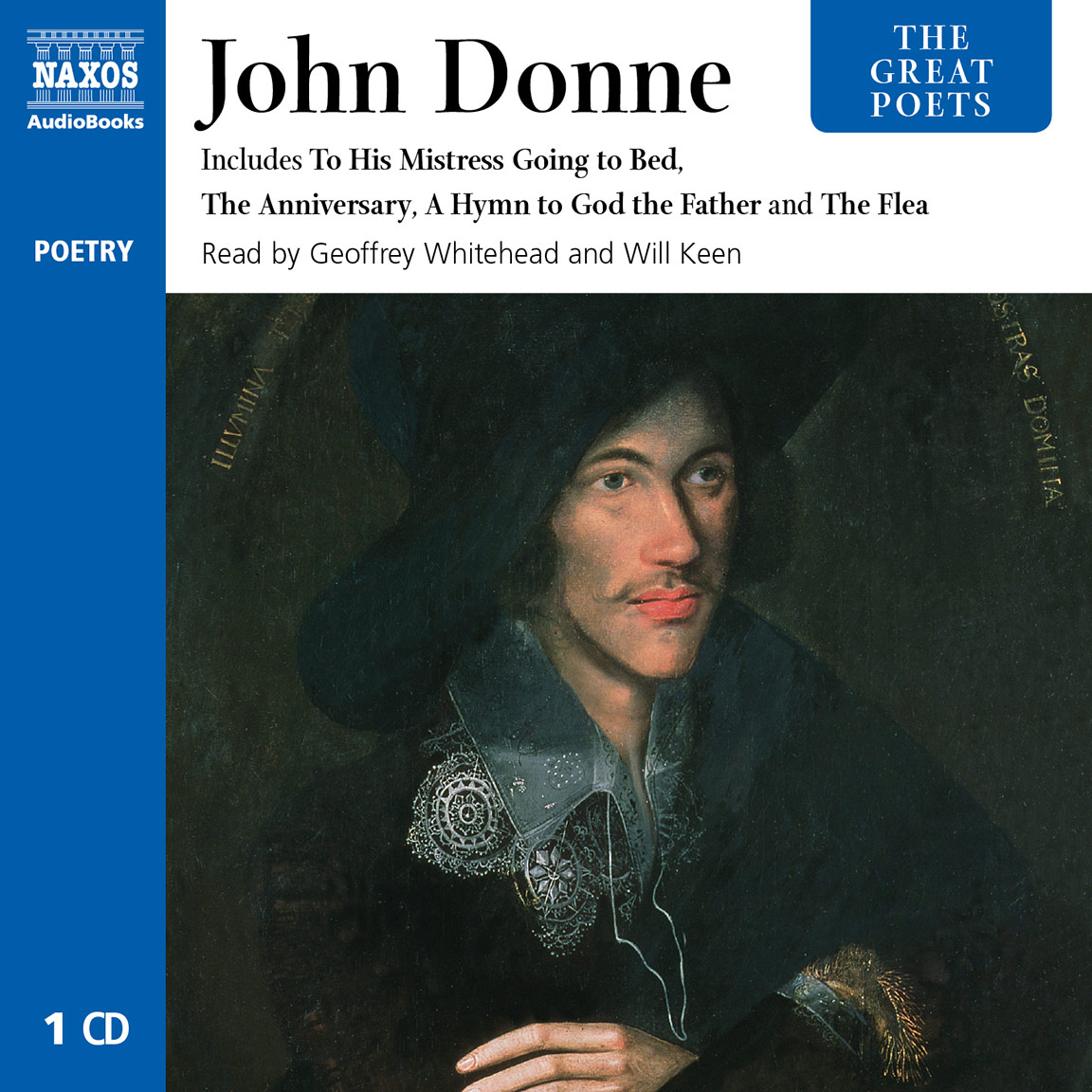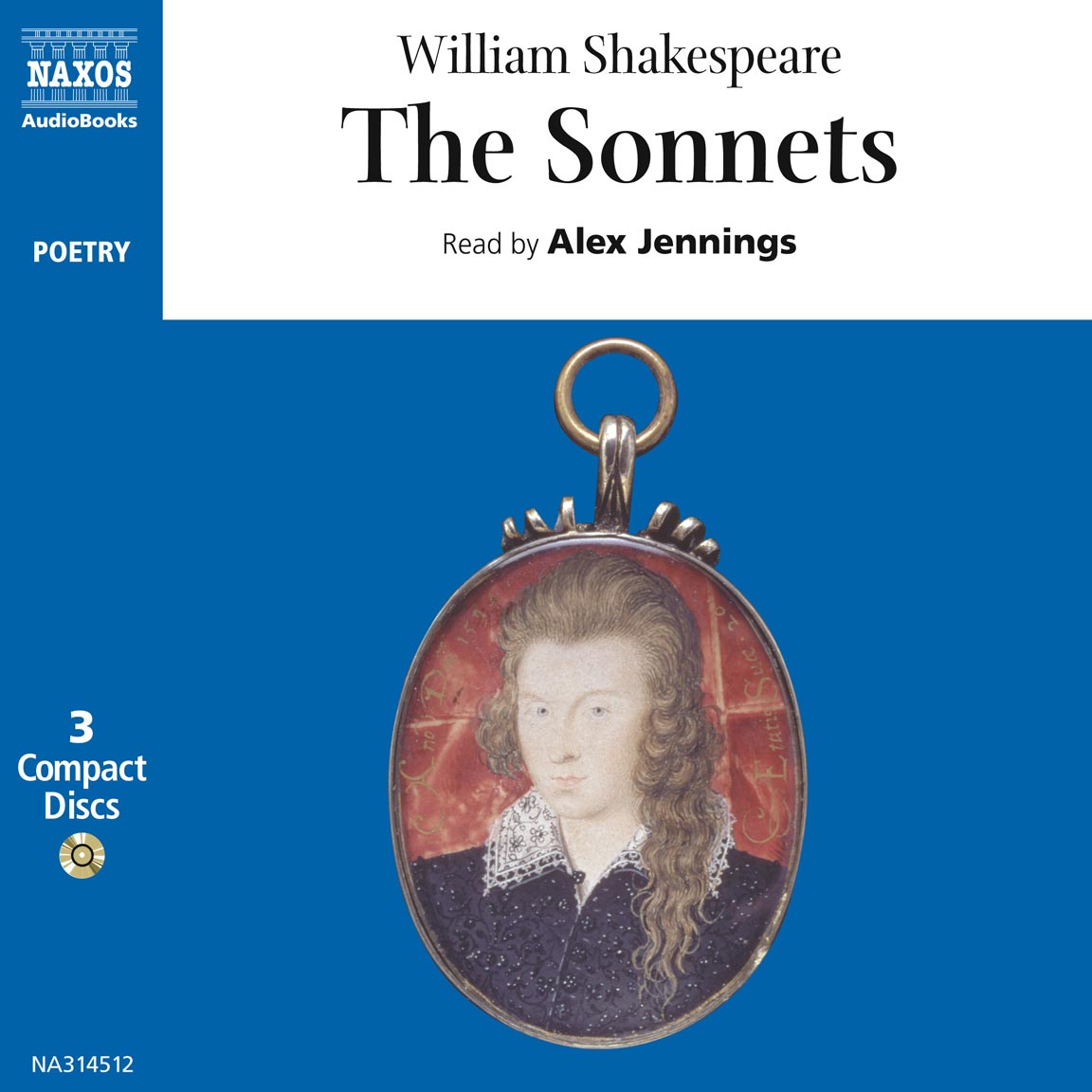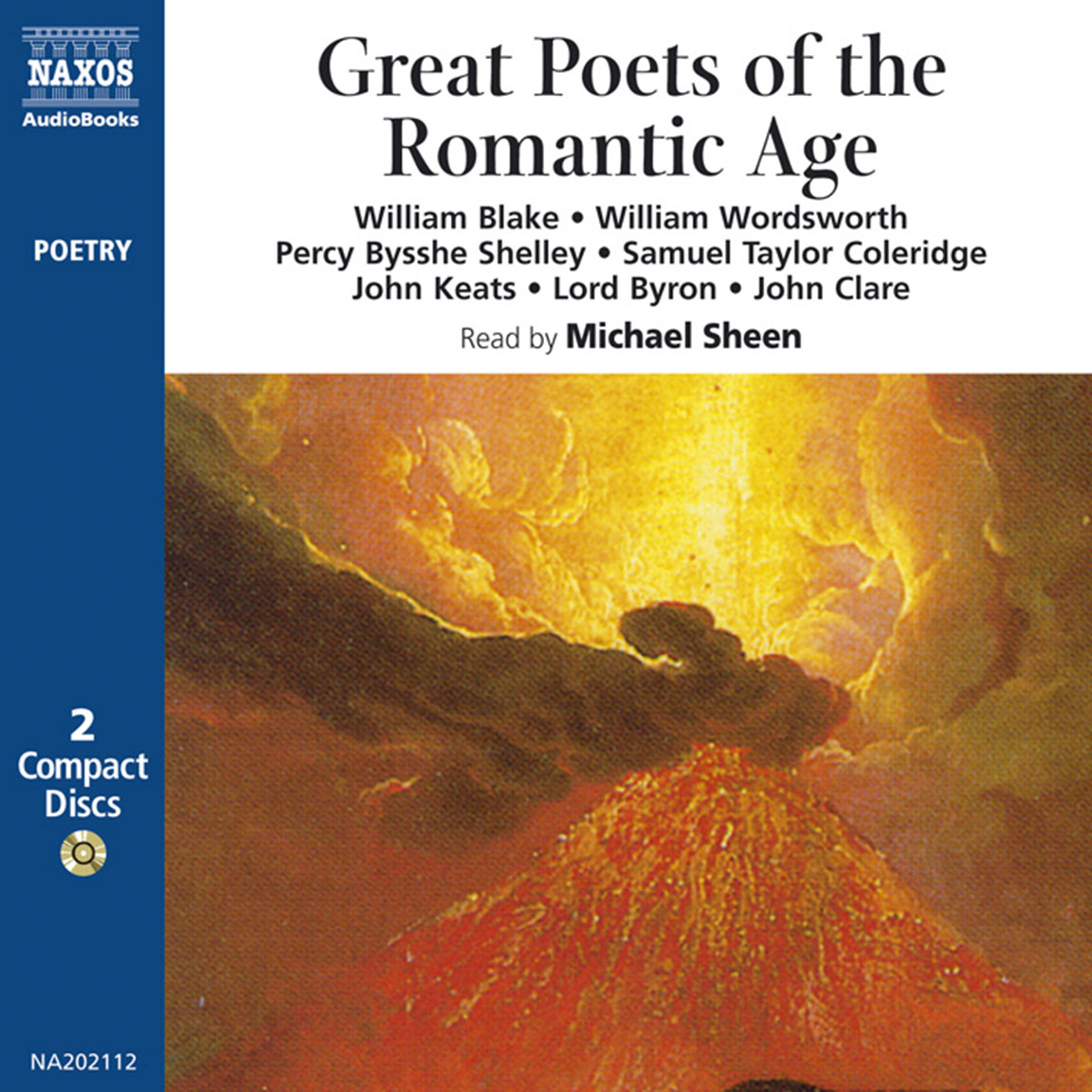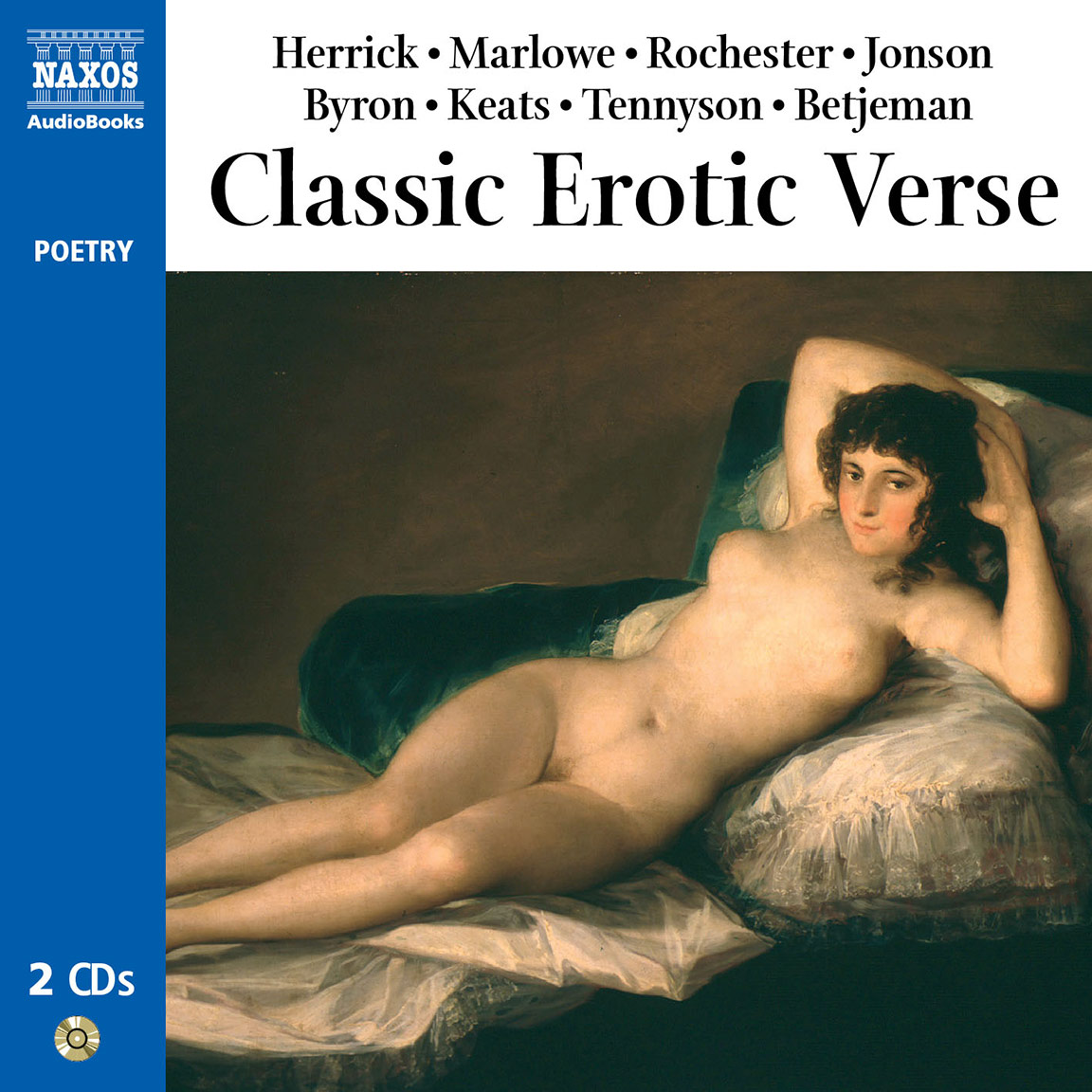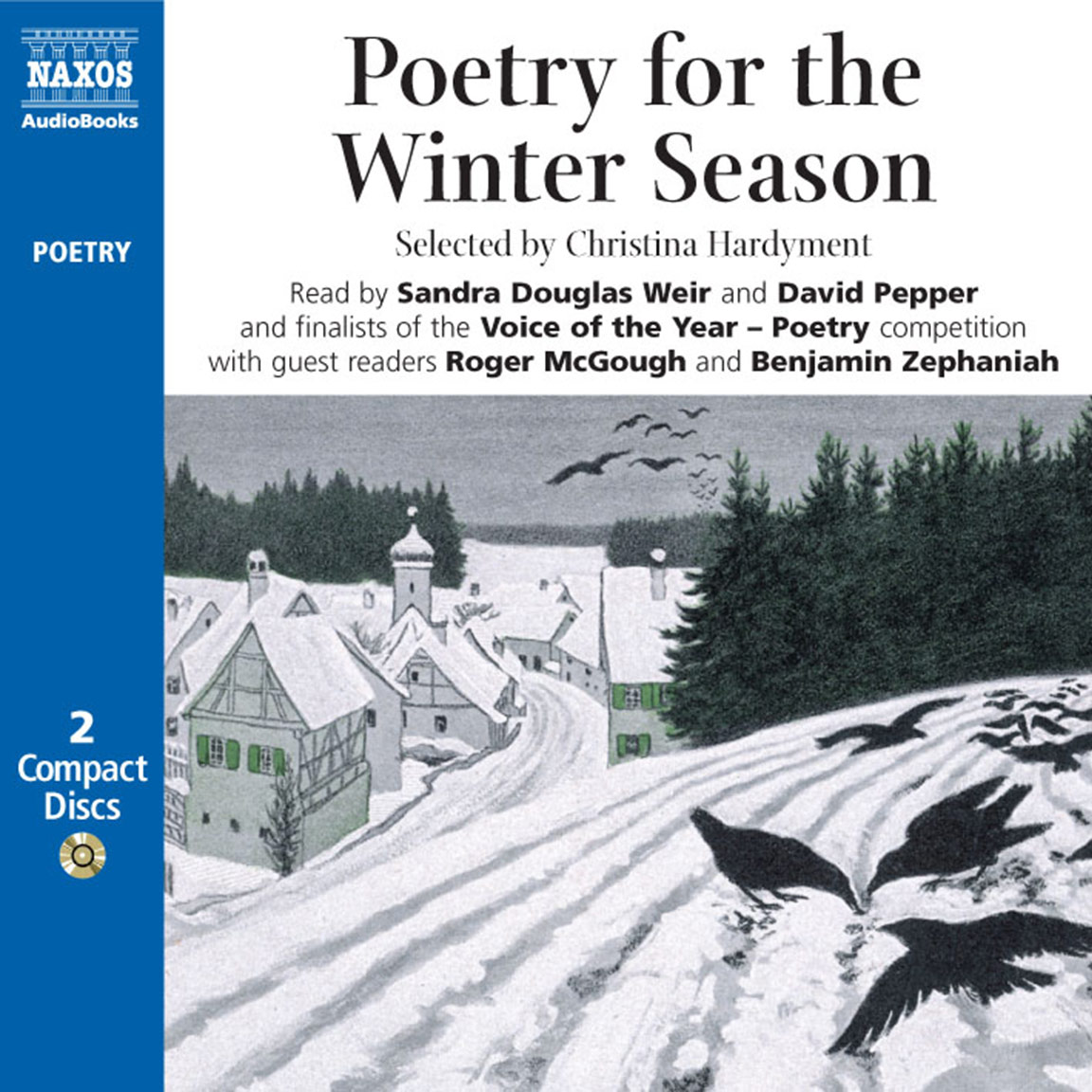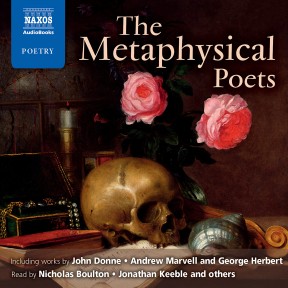
Audio Sample
John Donne, George Herbert, Henry Vaughan, Richard Crashaw & Thomas Carew
The Metaphysical Poets
Read by Nicholas Boulton, Jonathan Keeble, Roy McMillan, Laura Paton, Geoffrey Whitehead & Will Keen
selections
John Donne, Andrew Marvell, George Herbert, Thomas Carew and Henry Vaughan: these were some of the 17th-century writers who devised a new form of poetry full of wit, intellect and grace, which we now call Metaphysical poetry. They wrote about their deepest religious feelings and their carnal pleasures in a way that was radically new and challenging to their readers. Their work was largely misunderstood or ignored for two centuries, until 20th-century critics rediscovered it, finding in it a deep originality and a willingness to experiment that made much conventional poetry look merely decorative. This collection provides the perfect introduction to this diverse group of fascinating poets.
-
Running Time: 1 h 19 m
More product details
Digital ISBN: 978-1-84379-593-3 Cat. no.: NA0089 Download size: 19 MB BISAC: POE001000 Released: August 2012 -
Listen to this title at Audible.com↗Buy on CD at Downpour.com↗Listen to this title at the Naxos Spoken Word Library↗
Due to copyright, this title is not currently available in your region.
You May Also Enjoy
Included in this title
- The Anniversary by John Donne, read by Geoffrey Whitehead
- The Good Morrow by John Donne, read by Geoffrey Whitehead
- The Sun Rising by John Donne, read by Will Keen
- The Canonisation by John Donne, read by Will Keen
- A Valediction Forbidding Mourning by John Donne, read by Geoffrey Whitehead
- A Nocturnal Upon St Lucy’s Day by John Donne, read by Geoffrey Whitehead
- The Flea by John Donne, read by Will Keen
- The Relic by John Donne, read by Will Keen
- The Collar by George Herbert, read by Jonathan Keeble
- Redemption by George Herbert, read by Jonathan Keeble
- Love I by George Herbert, read by Jonathan Keeble
- Love II by George Herbert, read by Jonathan Keeble
- Love III by George Herbert, read by Jonathan Keeble
- Jordan I by George Herbert, read by Jonathan Keeble
- Jordan II by George Herbert, read by Jonathan Keeble
- The Pearl by George Herbert, read by Jonathan Keeble
- The Flower by George Herbert, read by Jonathan Keeble
- To His Coy Mistress by Andrew Marvell, read by Nicholas Boulton
- The Coronet by Andrew Marvell, read by Nicholas Boulton
- The Definition of Love by Andrew Marvell, read by Nicholas Boulton
- The Garden by Andrew Marvell, read by Nicholas Boulton
- On a Drop of Dew by Andrew Marvell, read by Nicholas Boulton
- The Retreat by Henry Vaughan, read by Roy McMillan
- The World by Henry Vaughan, read by Roy McMillan
- They Are All Gone Into the World of Light by Henry Vaughan, read by Roy McMillan
- To His (Supposed) Mistress by Richard Crashaw, read by Nicholas Boulton
- To Our Lord, Upon the Water Made Wine by Richard Crashaw, read by Nicholas Boulton
- Mediocrity in Love Rejected – by Thomas Carew, read by Nicholas Boulton
- To a Lady That Desired I Would Love He by Thomas Carew, read by Nicholas Boulton
- The Spring by Thomas Carew, read by Nicholas Boulton
- Edward, Lord Herbert of Cherbury – To His Watch… by Edward, Lord Herbert of Cherbury, read by Roy McMillan
- Hoc Ego Versiculos by Francis Quarles, read by Jonathan Keeble
- On Time by Francis Quarles, read by Jonathan Keeble
- On the World by Francis Quarles, read by Jonathan Keeble
- Against Love by Katherine Philips, read by Laura Paton
- John Hall – On an Hourglass by John Hall, read by Nicholas Boulton
- Thomas Traherne – Shadows in the Water by Thomas Traherne, read by Jonathan Keeble
- To Lucasta, Going to the Wars by Richard Lovelace, read by Nicholas Boulton
- The Scrutiny by Richard Lovelace, read by Nicholas Boulton
- Aubade The Lark Now Leaves… by Sir William Davenant, read by Nicholas Boulton
- Sir John Suckling – Of Thee, Kind Boy, I Ask No Red and White by Sir John Suckling, read by Nicholas Boulton
- Out Upon It, I Have Lov’d by Sir John Suckling, read by Nicholas Boulton
- Edmund Waller – Of the Last Verses in the Book by Edmund Waller (1606–1687), read by Jonathan Keeble
Reviews
This one-CD production is an excellent introduction to a period of English literary history. It is also a good review for old English majors who’ve forgotten their stuff. There is an excellent insert in the CD case that provides detailed background. The term ‘metaphysical’ was coined by Samuel Johnson who was not completely flattering in his appraisal of these poets: ‘…their learning instructs and their subtlety surprises; but the reader, though he sometimes admires, is seldom pleased.’ The term, notes insert author Peter Whitfield, does not carry a strictly philosophical meaning. There is in these poets a theme, like the famed Rumi, that compares and/or mixes romantic and erotic love with love of the Divine. Not as compellingly as Rumi, however. Still, a certain delight can be taken in them, a fascination with their erotic expression in a more publicly repressed age. Though flowery, the metaphors often surprise like Donne’s longing equation of sexual consummation as he contemplates the mixed blood in a flea that has bitten him and his beloved. The ‘seize the day’ exhortation of Andrew Marvell’s To His Coy Mistress is one of the most famous poems in the language. The inclusion of the woman poet, Katherine Philips, is appreciated in a time when few women were taken seriously as writers. The insert gives a good overview but the CD only contains the poems without further commentary. This is regrettable as, given the complexity of the language, some prepping of the listener would be welcome. The readers, themselves, are excellent with appropriate British accents.
Nancy Crowder-Chaplin, Sound Commentary
Booklet Notes
About the beginning of the seventeenth century appeared a race of writers that may be termed the metaphysical poets … who were men of learning, and to show their learning was their whole endeavour … The most heterogeneous ideas are yoked by violence together; nature and art are ransacked for illustrations, comparisons, and allusions; their learning instructs and their subtlety surprises; but the reader, though he sometimes admires, is seldom pleased.
So wrote the great Doctor Johnson in 1779, and his words are still a valid summary of what we understand by ‘the metaphysical poets’, led by John Donne, and including George Herbert, Richard Crashaw, Thomas Carew, and Andrew Marvell. Johnson was using the word metaphysical not in any strict philosophical sense, but to indicate that these poets explored subtle and complex ideas and imagery. What has changed since Johnson is his final judgement that readers were not pleased by these poets: at the time he was undoubtedly correct, and for the next century and more, Donne and his school were seen as difficult, cold, unemotional writers. All that changed in the early twentieth century, when the Metaphysicals came to be recognised as daring, experimental poets, who blended thought and feeling in an exciting way, a way that was new to its own time, and new once again in the modern age. In the romantic era, Coleridge had complained that Donne had ‘Wreathed iron pokers into true-love knots.’
Donne’s poetry laid the ground rules for Metaphysical verse, and the essence of what he was trying to do was to find an intellectual language that would link the physical world with the abstract or spiritual world. The method that he devised was to force radically dissimilar ideas and images together. A classic example is the poem ‘The Flea’, where the writer complains that his beloved will not consummate their love; and yet, he argues, they are already married, made one flesh, through a flea which has bitten them both and sucked their blood and thus mingled their beings within his tiny body. The flea is not an image in any normal poetic sense, but a vehicle for subtle, intellectual argument. It is as though Donne had decided to re-write the conventional love poetry of the Elizabethan songbird-poets, with their emotive, rhetorical praise of feminine beauty. Donne’s poetry was of two distinct types: the carnal, intellectualised love poetry written as a young man, and the profound devotional verse, composed after he had taken holy orders; yet here too he employed intellectual imagery, conceits, and paradox, as when he proclaims that he can never be free until God enthrals him, never chaste until God ravishes him.
Carnal love and religious faith are the two great themes of all metaphysical verse, although usually they come from different writers, not from one writer with two distinct voices like Donne. The other characteristic of this verse is that it usually remained unpublished in the writer’s lifetime. Sometimes the poems were circulated informally in manuscripts, but for most of these writers poetry remained a purely private activity, a private exploration of their true inner world, perhaps to be shared with friends, then gathered and published after their deaths. Donne’s poetry was published by his son in 1633, two years after the poet’s death. In the same year George Herbert, who was also a priest, died and left his manuscripts to a friend, with instructions to burn them or publish as he thought fit. Herbert described his poetry as ‘A picture of the many spiritual conflicts that have passed between God and my soul.’ The carnality of Donne is absent, but Herbert employs radically new images to record the stages of his relationship to his God, a relationship ranging from despair to devotion, from rebellion to bliss. Henry Vaughan wrote secular verse before undergoing a religious conversion and turning to devotional poetry full of images of dawn, light, spring and regeneration. Unusually, Vaughan’s work was published in his own lifetime, while that of another devotional poet, Thomas Traherne, remained entirely unknown for two centuries. When they were discovered, his writings, radiant with visionary innocence and intensity, were at first attributed to Vaughan.
The carnality of Donne was taken to extreme, sensual heights by Thomas Carew, who wrote an elaborate and adoring elegy on Donne, saying that he had been ‘First Apollo’s priest then God’s.’ Carew was a scholar and diplomat, a royalist and a great favourite in the court of Charles I. His verse, published posthumously, is witty, but less cerebral than Donne’s, and full of polished eroticism. Sir John Suckling and Richard Lovelace were men of action: soldiers, lovers, and poets who both blended something of Donne’s intellectual wit with the heroic sentiments of the Cavalier, and with more conventional praises of the beloved. Both had rather lurid reputations as libertines.
Richard Crashaw was a unique figure: born of a Puritan family, but became a Roman Catholic, and lived in self-imposed exile in Rome, becoming the only English poet of the European Baroque school. He wrote highly-coloured and crafted, sumptuous, devotional poetry, evoking the spiritual love of God through carnal imagery. One of his contemporaries called Crashaw ‘a very bird of paradise.’ Women who wished to be taken seriously as poets had a hard time in the seventeenth century, but Katherine Philips succeeded in establishing a reputation for wit and learning in the metaphysical style, combined with poetic grace. Known at first only to a private circle of friends, her works were published shortly before her death in 1664. Francis Quarles added a new dimension to poetry by illustrating his work with ‘emblems’ – symbolic pictures which drove home the message of each poem through the use of visual codes. His poetry is not exactly exalted, but through these emblems he created for himself a permanent niche in the history of English verse.
The last Metaphysical was Andrew Marvell, born only a few years after Shakespeare’s death, and living well into the Reformation era. He was a scholar, diplomat and politician, and another who wrote only for his private pleasure. After his death his poems were published by a woman who claimed to be his wife, but whom everyone believed to be his housekeeper and his mistress. In all of his output there is just one perfect poem, ‘To his Coy Mistress’, a love-persuasion poem on the theme of carpe diem – ‘seize the time’ or ‘Gather ye rosebuds while ye may.’. One of the most famous poems in the language, it is an irresistible blend of music and thought, of sensuousness and wit, of frivolity and seriousness. In ‘A Dialogue between the Soul and the Body,’ Marvell wrote as Donne’s true heir, and the culmination of the metaphysical tradition; elsewhere he wrote gracefully and with candid humour of the love he felt for a twelve-year-old girl.
Marvell died in 1678, in the age of Dryden and neo-classicism; spiritual passion or reflection, dialogues between soul and body, the application of the intellect to love or to religious devotion, were all now unwanted. The metaphysical style had seen the flowering of half a dozen poets of genius who had in their different ways explored the boundaries of the physical and the spiritual; but now their works were condemned to sleep and darkness, waiting to be awakened more than two centuries later by a new age that was ready for their subtlety and power.
Notes by Peter Whitfield
